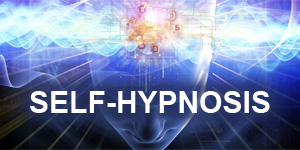Self-hypnosis is a highly suggestible state wherein the individual can direct suggestions to himself. It is a powerful tool in any therapeutic process. Self-hypnosis can be used as a palliative agent and can even afford lasting results in many areas. Self-hypnosis can alleviate distressing symptoms, help overcome bad habits, create good habits and help one’s power of concentration. The total personality is eventually changed to the point where it can function adequately in an increasingly difficult environment.
In learning self-hypnosis, the subject does not relinquish control of himself as is commonly believed. Actually, more control is gained. Self-sufficiency and self-confidence are inevitable results.
Neither hypnosis nor self-hypnosis should ever be used indiscriminately. The effectiveness of self-hypnosis depends upon many factors. Strong motivation, intelligent application of suggestions and diligence are prerequisites.
As a professional hypnotist for many years, I have seen astounding and apparently miraculous results by individuals using self-hypnosis. Many of these cases seem unbelievable to those not familiar with hypnotic phenomena. It should be remembered, though, that many individuals seek hypnosis only when all other forms of therapy have failed. This is so common that hypnosis has come to be known as a port of last call. Yet, despite the seeming hopelessness of such cases, medical literature lists thousands of remarkable recoveries.
There is nothing hit or miss about hypnosis. Used intelligently, the results are the same for all those who are properly motivated. Nor are the results singular to modern hypnotists alone. In reviewing the literature going back more than 100 years, the same gratifying results were obtained.
